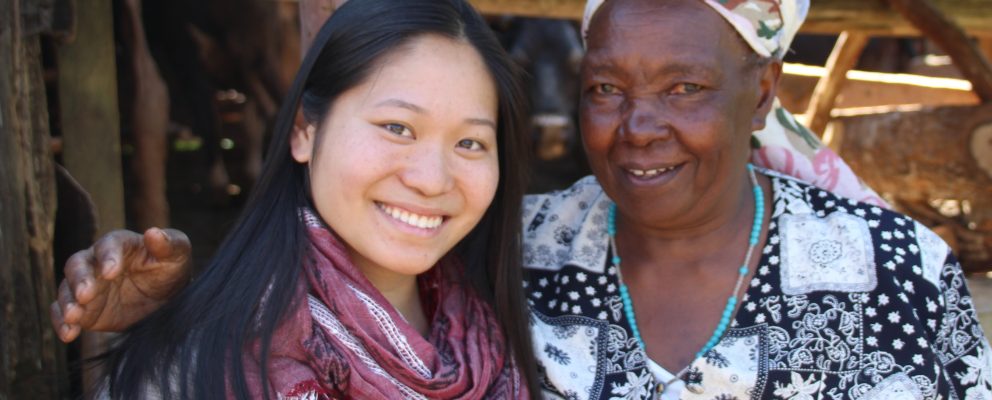
Spotlight on Jory Wong: Piloting LishaBora’s partnerships with milk traders part of Kenya’s informal dairy sector
In 2017, the Kenyan-venture LishaBora piloted a partnership program with milk traders to gain access to hundreds of fragmented and decentralized farmers. Currently, the venture serves about 300 farmer clients each month, providing higher-quality feed to dairy farms to help improve the livelihoods of smallholder farmers by increasing dairy production. New partnerships with milk traders, or “brokers”, are a new sales channel for LishaBora, reaching up to 100 new farmers through a single broker. Each broker purchases milk from their partner farms, and can sell and deliver LishaBora’s dry-feed product. These partnerships are anticipated to lower the cost of sales and increase distribution efficiency from feed factory to farm.
Expertise from EWB fellows have supported the rigorous thought behind the venture’s pivots and modifications. Jory Wong, a fellow with LishaBora last summer helped pilot the partnership’s strategy with milk traders, supporting the implementation of LishaBora’s new mobile application. The app is a digital tool for traders to organize and track their milk purchases and credit owed to each farmer, reducing the bottleneck of paper-based documentation. Farmers can also purchase LishaBora feed products through their milk trader on the app. The broker then subtracts the cost of the feed from its payout to the farmer. Over the course of her fellowship, Jory developed a strong relationship with a milk trader, getting to know how he worked to strengthen the platform’s user experience and showing him updates.
For the entrepreneurial and ambitious traders, LishaBora’s app has helped them scale beyond their previous capacity by easing the administrative tasks. The app also addresses farmer cash flow issues, who couldn’t afford bags of feed until they received income from their trader.
My experience at LishaBora exposed me to the confounding challenge faced by many social enterprises – how to provide high-value services to marginalized people, while being a profitable business. The opportunity to develop Lishabora’s relationships with milk traders was incredibly valuable, as well as being responsible for getting the pilot off the ground.”
Since EWB’s initial investment in LishaBora in 2015, the venture has made other strategic pivots in response to market demands and their own learnings. They no longer produce a fresh feed product requiring daily distribution. Based on customer feedback, LishaBora determined that the benefits of fresh fodder alone may not be significant enough to offset the added cost and water weight associated with the product. Their current dry-feed product is delivered monthly to farmers with a lower cost, weight and longer shelf-life. These shifts were necessary to solve the “last mile delivery” constraints and the costs of distribution. LishaBora is currently measuring the impact of its new feed product on milk yield and farmer income.
